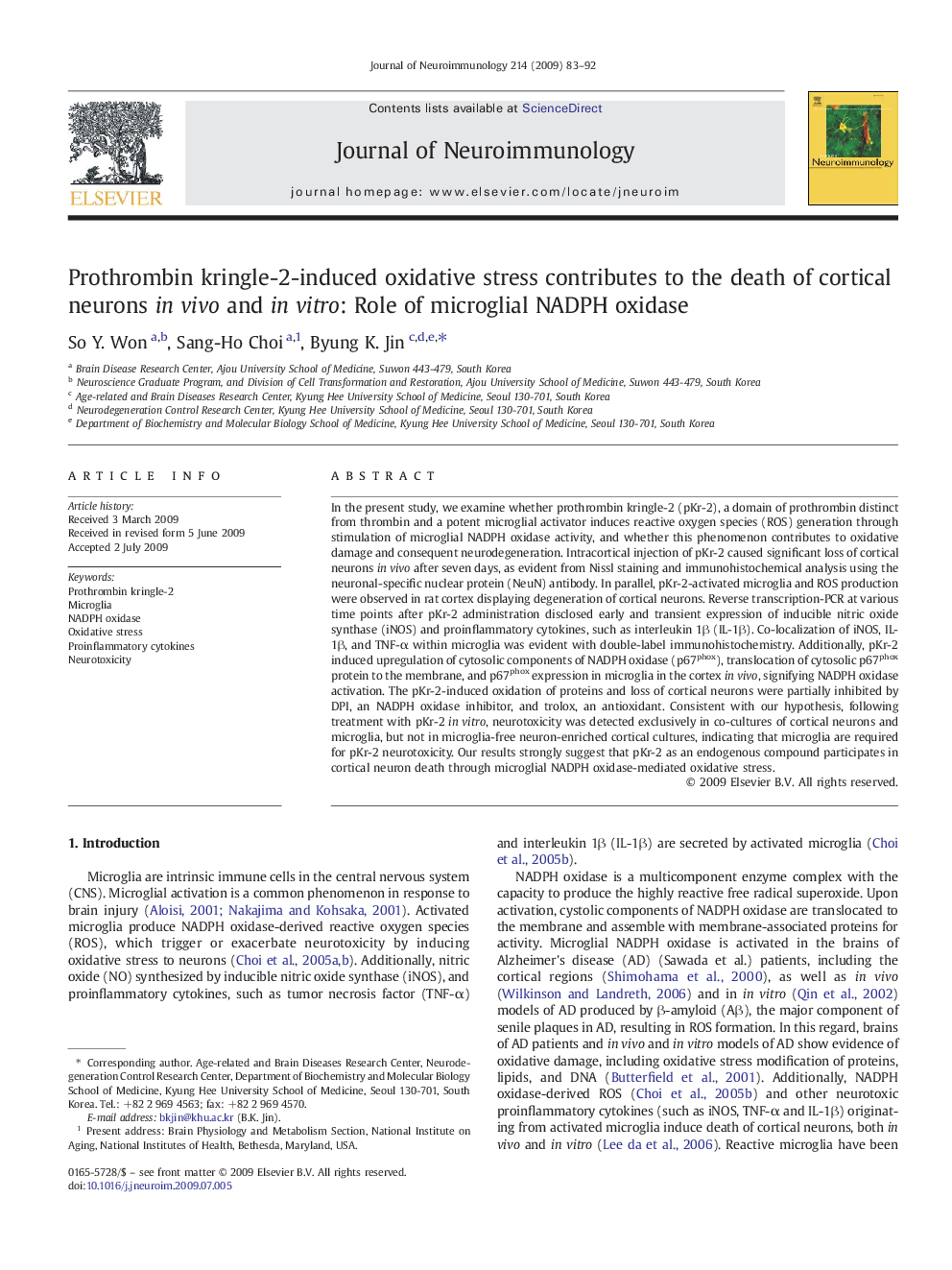| Article ID | Journal | Published Year | Pages | File Type |
|---|---|---|---|---|
| 3065004 | Journal of Neuroimmunology | 2009 | 10 Pages |
In the present study, we examine whether prothrombin kringle-2 (pKr-2), a domain of prothrombin distinct from thrombin and a potent microglial activator induces reactive oxygen species (ROS) generation through stimulation of microglial NADPH oxidase activity, and whether this phenomenon contributes to oxidative damage and consequent neurodegeneration. Intracortical injection of pKr-2 caused significant loss of cortical neurons in vivo after seven days, as evident from Nissl staining and immunohistochemical analysis using the neuronal-specific nuclear protein (NeuN) antibody. In parallel, pKr-2-activated microglia and ROS production were observed in rat cortex displaying degeneration of cortical neurons. Reverse transcription-PCR at various time points after pKr-2 administration disclosed early and transient expression of inducible nitric oxide synthase (iNOS) and proinflammatory cytokines, such as interleukin 1β (IL-1β). Co-localization of iNOS, IL-1β, and TNF-α within microglia was evident with double-label immunohistochemistry. Additionally, pKr-2 induced upregulation of cytosolic components of NADPH oxidase (p67phox), translocation of cytosolic p67phox protein to the membrane, and p67phox expression in microglia in the cortex in vivo, signifying NADPH oxidase activation. The pKr-2-induced oxidation of proteins and loss of cortical neurons were partially inhibited by DPI, an NADPH oxidase inhibitor, and trolox, an antioxidant. Consistent with our hypothesis, following treatment with pKr-2 in vitro, neurotoxicity was detected exclusively in co-cultures of cortical neurons and microglia, but not in microglia-free neuron-enriched cortical cultures, indicating that microglia are required for pKr-2 neurotoxicity. Our results strongly suggest that pKr-2 as an endogenous compound participates in cortical neuron death through microglial NADPH oxidase-mediated oxidative stress.
